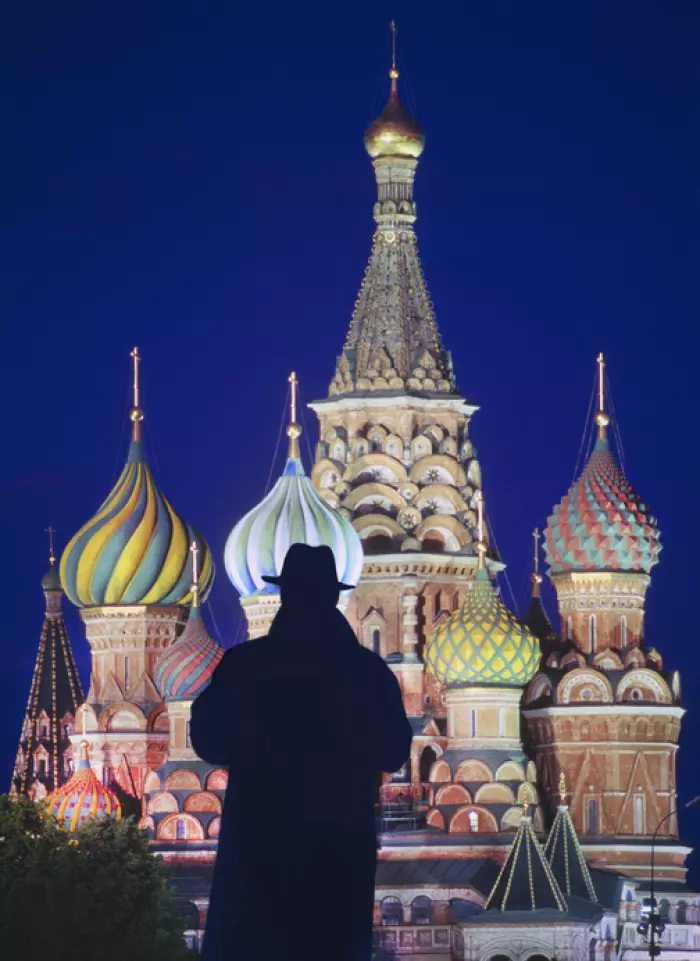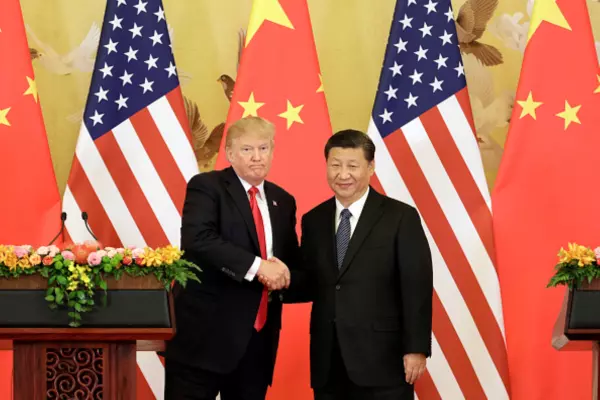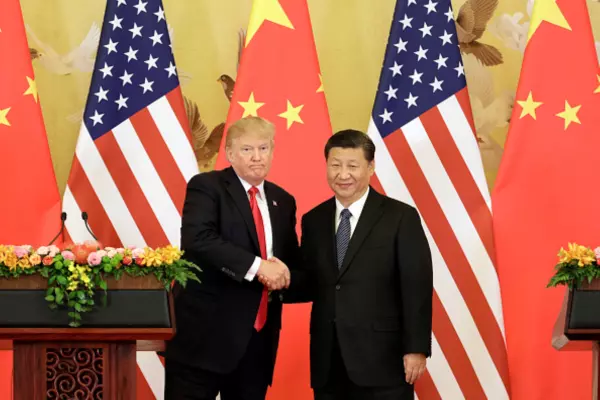Viktor Muller Ferreira was a young Brazilian with impressive credentials and a big break. Fresh from the Johns Hopkins School of Advanced International Studies in Washington, DC, an incubator of talent for America’s national security elite, he had secured an internship at the International Criminal Court (ICC) in The Hague.
But when he landed in Amsterdam in April, he was quickly deported to Brazil. Ferreira was, in fact, Sergey Vladimirovich Cherkasov, an intelligence officer working for the GRU, Russia’s military intelligence service.
Cherkasov was a so-called illegal, of the sort depicted in the popular television series The Americans – an officer dispatched abroad under an elaborate foreign identity, often for life.
In a four-page document obtained by Dutch intelligence, an aide-memoire of sorts, his cover story was laid out in painstaking detail, down to childhood crushes and favoured restaurants. Cherkasov is now languishing in a Brazilian prison, sentenced to 15 years.
When the Soviet KGB was dissolved in 1991, it reappeared as the FSB, a domestic security service, and the SVR, a foreign intelligence agency. The GRU has endured in one form or another since 1918. These “special services” bask in the fearsome reputation of their tsarist and Soviet forebears. But they emerge from the war in Ukraine with that reputation, and their networks, in tatters.
 The huge explosion caused a section of the Kerch Bridge to collapse. The 19km bridge, the longest in Europe, links Russia and Crimea and was built after Moscow annexed the peninsula in 2014. (Image: Getty)
The huge explosion caused a section of the Kerch Bridge to collapse. The 19km bridge, the longest in Europe, links Russia and Crimea and was built after Moscow annexed the peninsula in 2014. (Image: Getty)
The explosion that damaged the Kerch bridge on Oct 8 was only the latest security foul-up; Ukrainian operatives are also suspected of having orchestrated a car bombing in Moscow in August which killed the daughter of a prominent Russian ultra-nationalist ideologue, according to the New York Times.
Intelligence failure lies at the heart of the war. The FSB, the lead agency for protecting Russian secrets and spying in Ukraine, bungled both tasks in spectacular fashion.
It failed to stop America from obtaining, and then publicising, Russian war plans for Ukraine – the most dramatic deployment of intelligence since America’s exposure of Soviet missiles on Cuba in 1962.
Worse still, it was the FSB’s own conspicuous preparations for war – including plans to kill dissidents and install a puppet government – that helped convince US and British officials that the Russian military build-up was not a bluff.
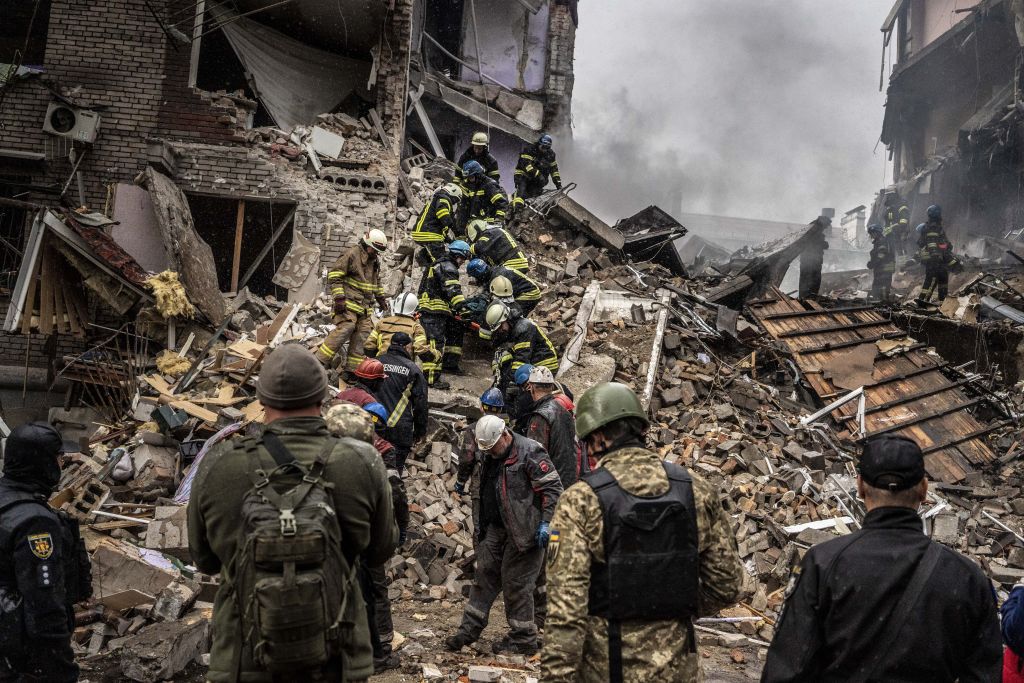 Before launching the war against Ukraine, Moscow was told by its intelligence services that the Kyiv government would be a pushover. (Image: Getty)
Before launching the war against Ukraine, Moscow was told by its intelligence services that the Kyiv government would be a pushover. (Image: Getty)
Vladimir Putin’s decision to go to war in the first place also owed much to the FSB’s bungling.
The agency’s Fifth Service, responsible for ex-Soviet countries, expanded its Ukraine team dramatically in July 2021, according to a report by the Royal United Services Institute, a think-tank in London. Yet its officers largely spoke to those Ukrainians who were sympathetic to Russia and exaggerated the scale of their agent networks in the country, giving the Kremlin the false impression that the Ukrainian government would quickly collapse.
Confirmation bias was only part of the problem.
Intelligence agencies, like armies, reflect the societies they come from. At their best, Russian spies can be bold and resourceful.
“We’ve consistently been surprised by the cleverness and relentlessness of some of the things that they do,” says John Sipher, who served as the US Central Intelligence Agency's station chief in Moscow and later ran its Russia operations.
“They have really, really smart people.”
But that talent co-exists with venality and dysfunction.
Intelligence is embellished at each stage as it rises up the chain, with bad news stripped out before it reaches the Kremlin. A Western official describes how, in one GRU unit, officers are thought to have skimmed off 30% of the salaries of the agents they recruited.
That figure rose to 50% as the officers gradually had to spend more time padding out reports with information culled from the internet.
The great strength of Russian intelligence is its sheer scale. Yet only a fraction of its personnel do useful spywork. It was FSB officers who poisoned Alexei Navalny, an opposition leader, with Novichok, a nerve agent, in Siberia in 2020.
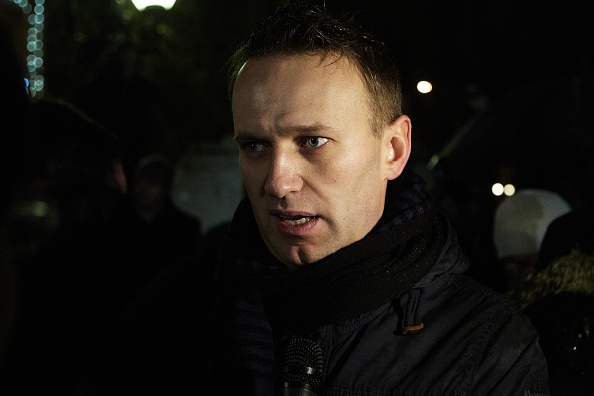 The FSB tried to kill Alexei Navalny with the nerve agent Novochok in 2020. He is now in prison for 11 and a half years after an embezzlement trial Amnesty International labelled a sham. (Image: Getty)
The FSB tried to kill Alexei Navalny with the nerve agent Novochok in 2020. He is now in prison for 11 and a half years after an embezzlement trial Amnesty International labelled a sham. (Image: Getty)
Nothing encapsulates the dual ethos of repression and larceny better than the fact that the FSB’s most sought-after position is the chief of the Fourth Service, a division responsible for “economic security”. Its officers are placed in key companies, giving them ample opportunity to enrich themselves.
Infighting within the agencies, and with other government departments, is rife.
“The FSB is like the Game of Thrones,” says Maxim [not his real name], a former FSB counterintelligence officer.
“You have different clans inside with different political and financial interests.”
The SVR, a descendant of the First Chief Directorate, the KGB’s flagship foreign intelligence arm, considers itself more urbane and polished than its Russian sister services.
“Our view was that the SVR was far more effective and sophisticated than the GRU,” recalls Sipher.
 Russian spies are reportedly resorting to cyber-espionage as they become separated from their intelligence networks. (Image: Getty)
Russian spies are reportedly resorting to cyber-espionage as they become separated from their intelligence networks. (Image: Getty)
But the war has left it battered. Western countries have expelled more than 400 suspected Russian intelligence officers since the northern spring, mostly SVR officers, eliminating nearly half of those operating under diplomatic cover in Europe. Those remaining face heightened scrutiny by local security services.
A recent report by Supo, Finland’s intelligence service, notes that Russian intelligence officers there have mostly been “severed” from their networks.
It warns that Russian spies are resorting to alternative means. One is cyber-espionage. Another is the recruitment of foreigners within Russia.
A third, which Supo does not mention, is to lean more heavily on illegals such as Cherkasov. But that comes at a cost. The pressure on illegals is driving them to take greater risks than usual, according to European intelligence officials.
In March, for instance, Poland arrested Pablo González, a Spanish-Russian journalist also known as Pavel Rubtsov, on suspicion of working for the GRU. A Ukrainian source says he was attempting to enter Ukraine to access a cyber unit in one of the country’s intelligence agencies (Rubtsov denies the charges).
Cherkasov might have targeted the ICC because it had opened an investigation into war crimes in Ukraine.
Their exposure will be keenly felt. Illegals are hugely expensive to train and deploy. The SVR is thought to have 50 to 100 deployed illegals, and the GRU only 10 to 20, according to sources familiar with those programmes.
 Facial recognition and other forms of biometric identification are making life more difficult for modern-day spies trying to cross international borders incognito. (Image: Getty)
Facial recognition and other forms of biometric identification are making life more difficult for modern-day spies trying to cross international borders incognito. (Image: Getty)
In many ways, Russian spies face the same professional challenges as their Western counterparts. It is becoming increasingly difficult to cross borders under multiple names, given the ubiquity of biometric controls, or build a digital backstory that stands up to scrutiny.
Paying and communicating with agents is another challenge. But whereas Western spies have learnt how to blend into the noise, Russian ones have been slow to adapt.
Illegals still use the dated technique of appropriating the identity of a dead baby (familiar to readers of The Day of the Jackal, a novel published in 1971). Sloppiness abounds. Data leaked from a Russian food-delivery service in March exposed the names of FSB and GRU officers having food delivered to their respective headquarters.
That would not matter so much if Russian intelligence were not under intense scrutiny.
Ever since the GRU’s attempted assassination of Sergei Skripal, a former officer, in Salisbury, England, in 2018, Western allies have shared increasing amounts of intelligence on Russian spooks. Though it was Dutch intelligence that exposed Ferreira, the operation was a joint endeavour that relied on America, Ireland and others.
There has been little accountability for all this bungling.
Western officials say they cannot confirm rumours that Sergei Beseda, the head of the FSB’s Fifth Service, was arrested in Russia in March. There are no proven job losses at senior level. That reflects the privileged status of the siloviki – securocrats – in the Russian state.
Putin does not trust his spies – he is said to be bypassing Alexander Bortnikov, the FSB’s chief, and talking to department heads – but it would be unwise to pick a fight with them just as his regime is experiencing an upswell of popular discontent over the drafting of hundreds of thousands of young Russian men to fight in Ukraine.
On Oct 8, Putin even placed the FSB in charge of security for the Kerch Bridge.
The result is likely to be more of the same. “You have a deep tradition of intelligence professionalism,” says Sir John Sawers, a former chief of MI6 in the UK, “and like a gangrene on top of it is this growing corruption.” Maxim, the former FSB officer, agrees. “Back in the 1990s and 2000s, there was a KGB touch to it. We stayed under the radar,” he says. The breaking point for him was when new graduates of the FSB academy were spotted driving a luxury Mercedes around Moscow. Ukraine is an opportunity to rebuild, he says. “They need to substitute this money world with something bigger. I’m not sure how they are going to do it.”
© 2022 The Economist Newspaper Limited. All rights reserved.
From Economist.com, published under licence. The original article can be found on www.economist.com


